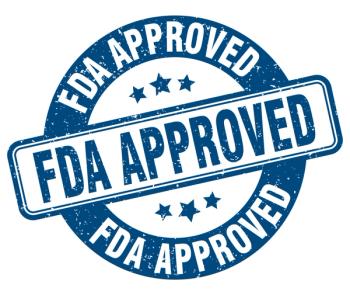
FDA Approves Sotagliflozin For Heart Failure Across Full Range of LVEF
The medication is broadly approved for heart failure with preserved or reduced ejection fraction.
The FDA has approved sotagliflozin (Inpefa), a once-daily oral tablet intended to reduce the risk of cardiovascular death, hospitalization for heart failure, or urgent heart failure visits in adults with heart failure or type 2 diabetes, chronic kidney disease, or other cardiovascular risk factors.1 The broad label approval includes patients with heart failure “across the full range of left ventricular ejection fraction (LVEF),” including both preserved and reduced ejection fraction, as well as patients with or without diabetes.
Approval was based on 2 randomized, double-blind, placebo-controlled phase 3 cardiovascular outcomes studies in patients with heart failure or at risk for heart failure. The first of these studies, SOLOIST-WHF, evaluated cardiovascular efficacy of sotagliflozin vs placebo when added to standard of care in 1222 patients with type 2 diabetes recently hospitalized for worsening heart failure. SOLOIST-WHF results demonstrated a significantly reduced risk in composite of risk for heart failure hospitalizations or urgent visits and cardiovascular death by 33% vs placebo.
In the SCORED study, investigators evaluated the cardiovascular efficacy of sotagliflozin vs placebo when added to standard of care in a cohort of 10,548 patients with type 2 diabetes, chronic kidney disease with estimated glomerular filtration rate of 25 mL/min/1.73 m2 to 60 mL/min/1.73 m2, and risk for cardiovascular disease. The primary endpoint for this study was the total number of events comprised of deaths from cardiovascular causes and hospitalizations or urgent visits for heart failure in the treatment group vs placebo. Key secondary endpoints included the total number of events of deaths from cardiovascular causes, nonfatal myocardial infarction, and nonfatal stroke. Results demonstrated that SCORED achieved its primary endpoint.
“Based on outcomes observed in the SOLOIST-WHF study, initiating treatment with [sotagliflozin] prior to or upon hospital discharge has the potential to reduce the burden of readmissions on patients, caregivers, providers, and health systems,” said Craig Granowitz, MD, PhD, senior vice president and chief medical officer at Lexicon. “With today’s FDA approval, [sotagliflozin] is now a valuable option for physicians to consider when treating patients transitioning out of the hospital and working to break the cycle of repeated hospitalizations.”
Sotagliflozin is an inhibitor of sodium-glucose co-transporter type 1 and type 2 (SGLT1, SGLT2). SGLT inhibitors were recommended in 2022 by the American Heart Association, American College of Cardiology, and Heart Failure Society of America in their joint AHA/ACC/HFSA Guideline for the Management of Heart Failure. In April 2023, an American College of Cardiology expert consensus statement “highlighted the benefit of SGLT inhibitors as part of Guideline-Directed Medical Therapy) in patients with heart failure with preserved ejection fraction (HFpEF).” Per this statement, “SGLT2 inhibitors should be initiated in all individuals with HFpEF who are stable during hospitalization and have no patient population contraindications.”
Reference
1. Lexicon announces FDA approval of Inpefa (sotagliflozin) for treatment of heart failure. News release. Lexicon Pharmaceuticals. May 26, 2023. Accessed May 30, 2023. https://www.lexpharma.com/media-center/news/2023-05-26-lexicon-announces-fda-approval-of-inpefa-sotagliflozin-for-treatment-of-heart-failure
Newsletter
Pharmacy practice is always changing. Stay ahead of the curve with the Drug Topics newsletter and get the latest drug information, industry trends, and patient care tips.























